Are you contemplating a switch from traditional dairy milk to a plant-based milk? This shift raises numerous questions about the nature, taste, and versatility of non-dairy milks. How do they compare to dairy in flavor? Can you incorporate them into your breakfast cereals, smoothies, and even hot beverages like tea and coffee? And importantly, what are the environmental impacts of choosing plant-based over dairy milk? These inquiries are not only common but crucial for anyone considering a healthier lifestyle and environmental sustainability.
Plant-based milks offer a diverse and sometimes overwhelming selection, catering to various dietary needs and preferences, not limited to vegans. They present a unique combination of health benefits and ecological advantages that are worth exploring. Whether you’re a health enthusiast or environmentally conscious, understanding the implications of switching to non-dairy milk is essential. In this comprehensive guide, we delve into the intricacies of plant-based milks, helping you make an informed decision about this dairy alternative.
What are plant-based milks?
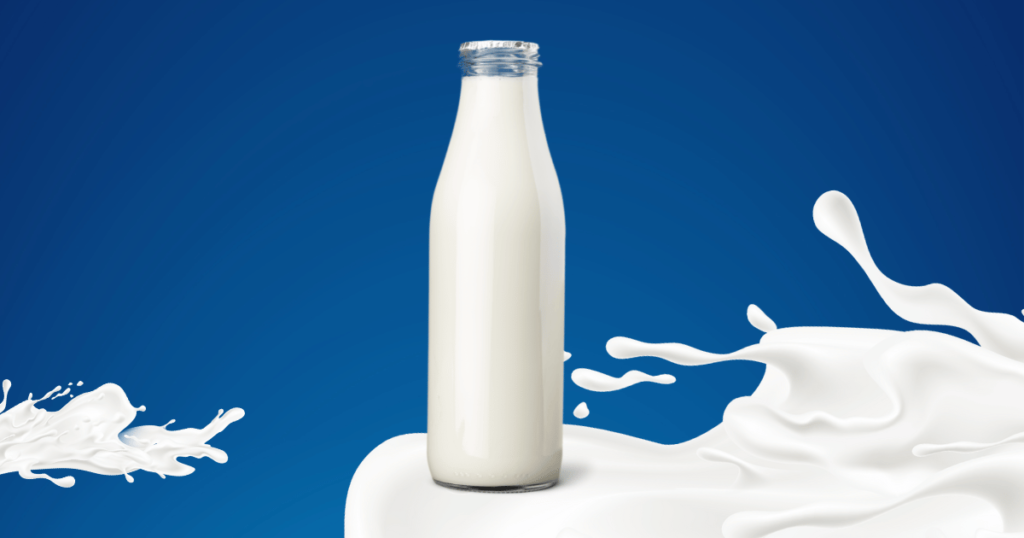
The world of dairy-free milk alternatives has evolved significantly, moving far beyond the early days of sweetened soy milk that often curdled in hot beverages. Today, the market is abundant with choices, including popular options like oat, almond, and hemp milks, as well as unique varieties like pea, tiger nut, and hazelnut milks. With such a vast selection, deciding which one to try can be a delightful challenge!
These dairy alternatives are commonly made from cereals or grains like oats and quinoa (yes, there’s even quinoa milk!), nuts such as almonds and cashews, or seeds like hemp. Creating plant-based milk involves soaking the base ingredient in water, then adding any additional components as needed.
Many of these milks are enhanced with essential vitamins and minerals like vitamin D and calcium, while others include stabilizers and preservatives for longer shelf life.
If you’ve ever experienced soy milk curdling in your tea, you’ll appreciate the development of ‘barista style’ plant-based milks. These are specially formulated to withstand the temperature changes and acidity in hot drinks, ensuring a smooth, lump-free experience. They’re perfect for adding to tea and coffee or for crafting frothy cappuccinos.
For those who prefer homemade options, creating dairy-free milk is straightforward, with oats being a popular choice. Simply soak them overnight, then strain the mixture to separate the milk from the solids. However, with the widespread availability of commercial dairy-free milks, experimenting with various store-bought types to find your favorite has never been easier.
Who should consider switching to a non-dairy milk?
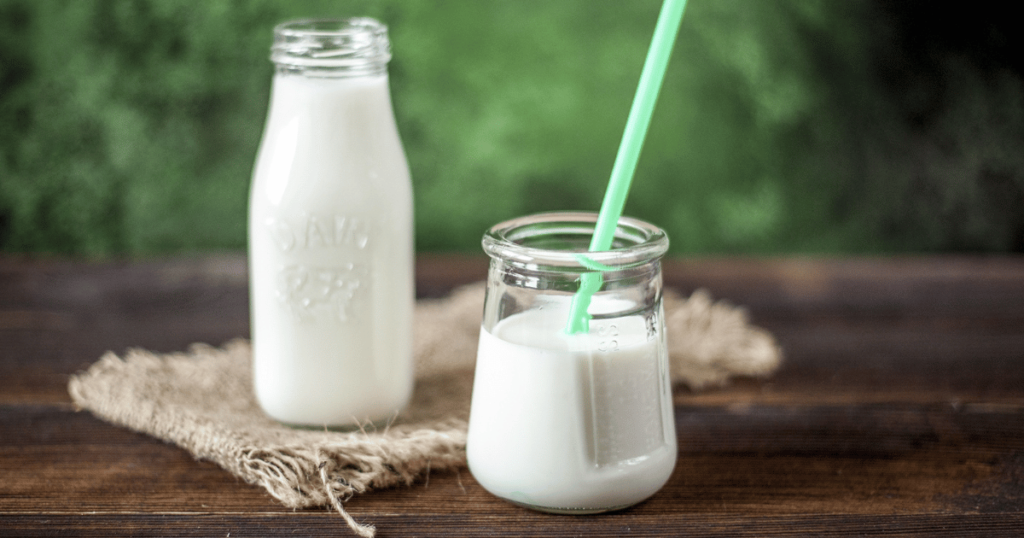
There are several compelling reasons why individuals might consider shifting from dairy milk to non-dairy alternatives. One significant motivation is animal welfare. Many people, particularly those following a vegan or vegetarian diet, choose plant-based milks to avoid consuming animal products like cow, sheep, or goat milk.
Environmental concerns also play a key role in this decision. Non-dairy milks are often seen as more sustainable and eco-friendly options, a topic we’ll explore in greater depth.
Health considerations are another major factor influencing the switch to non-dairy milk. For those with lactose intolerance, consuming dairy can lead to uncomfortable digestive issues, making plant-based milks an ideal alternative. Similarly, individuals allergic to milk and dairy products find non-dairy options safer and more comfortable. Moreover, the high saturated fat content in full-fat dairy is a health concern for some, prompting them to opt for non-dairy alternatives.
However, it’s important to note that the health benefits and drawbacks of plant-based milks can vary, and the topic isn’t entirely straightforward…
Nutrition – dairy milks vs plant-based milks
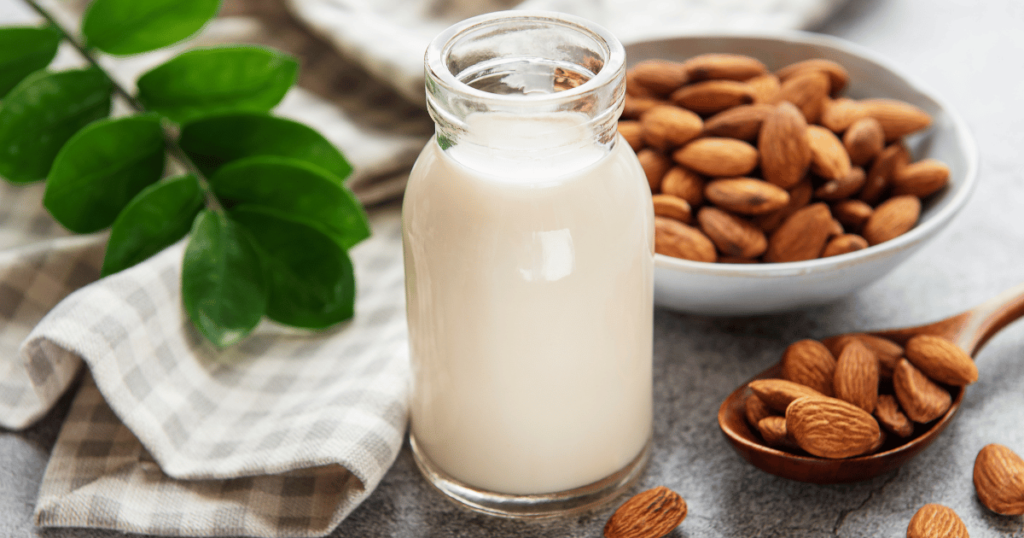
When it comes to nutrition, dairy and non-dairy milks have distinct differences worth considering. Cow’s milk, for instance, provides about 3.6g of protein per 100ml, a higher level compared to most plant-based milks, except for soya and pea milks which contain close to 3.3g per 100ml.
For those who use only a small amount of milk in their daily coffee, milk isn’t a significant protein source. However, for those relying on dairy-free milk in protein smoothies or cereal, and concerned about protein intake, soya or pea milk (preferably unsweetened) are excellent options.
Another important macronutrient to consider is fat. Cow’s milk, being an animal product, contains saturated fat, although reduced in skimmed and semi-skimmed varieties. On the other hand, most plant-based milks have much lower saturated fat content, making them a healthier choice in this aspect.
Micronutrients are also a key factor. Cow’s milk is rich in calcium and vitamin D, essential for healthy teeth and bones, and also contains phosphorus, zinc, and vitamin B12. However, for those consuming milk in small quantities, it’s not a significant source of these nutrients.
Many plant-based milks are fortified with essential micronutrients like calcium, iodine, and vitamins B12 and D, which can be beneficial. A well-rounded diet typically provides all necessary micronutrients. It’s important for those on a fully vegan diet to consider taking a vitamin B12 supplement, as this vitamin is challenging to obtain from plant sources alone, unless consuming large quantities of fortified foods.
Why is there vegetable oil in my non-dairy milk?
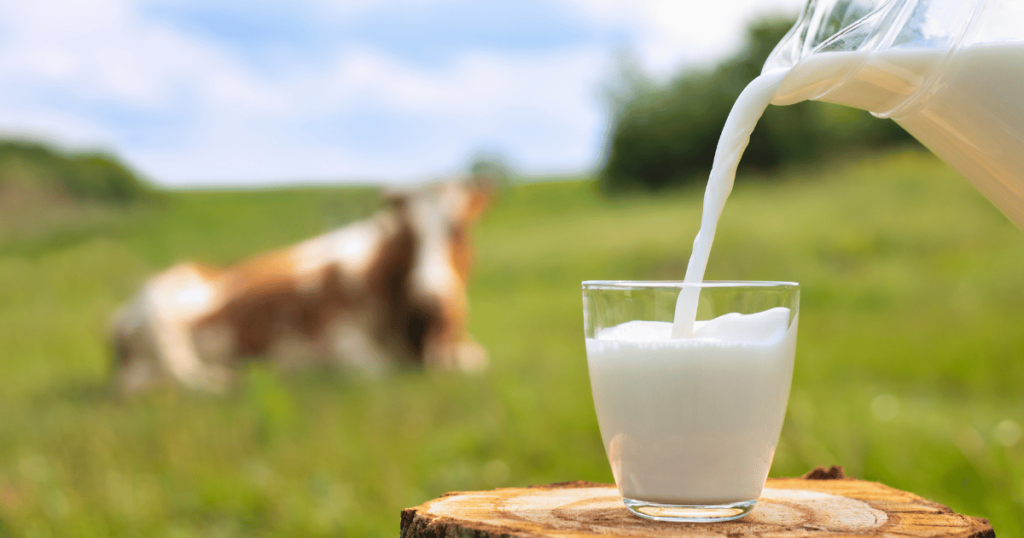
While plant-based milks generally have lower levels of saturated fats compared to dairy milk, it’s important to note that they are not always fat-free. Some non-dairy milks contain added sunflower or rapeseed oil, which can increase their fat and calorie content. This is especially relevant if these milks are consumed in large quantities daily, whether in smoothies, cereals, or as a beverage.
These oils serve as emulsifiers, binding the water-soluble and fat-soluble parts of the milk. Remember, oil and water naturally repel each other. So, when making almond milk, for example, the healthy fats and oils from almonds need an emulsifier to mix and remain blended with water, a primary ingredient in all plant-based milks.
However, these vegetable oils are often polyunsaturated fatty acids (PUFAs), high in omega-6. Given the prevalence of omega-6 in Western diets, we tend to consume them in excess. High levels of omega-6 can lead to inflammation, which, while a normal part of our immune response, can become chronic and contribute to diseases like heart disease, obesity, and type 2 diabetes.
Dietary factors like high intake of saturated fats, PUFAs, salt, and sugar, as well as lifestyle factors such as being overweight or stressed, can exacerbate inflammation.
Therefore, consuming plant-based milks with added vegetable oils might contribute to inflammation, particularly if consumed in large quantities. While there’s no specific limit, we recommend opting for non-dairy milks without added vegetable oils or using those with added oils sparingly.
Other common additives to plant-based milks
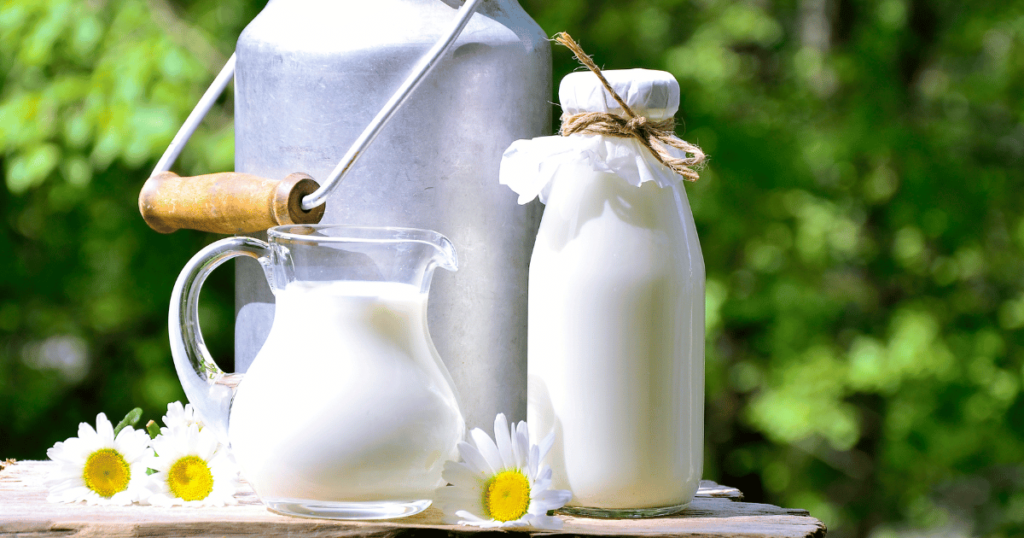
Plant-based milks often come fortified with additional vitamins and minerals, similar to those found in nutritional supplements. This fortification enhances their nutritional value, making them comparable to traditional dairy milk in terms of essential nutrients.
Some plant-based milks are labeled as ‘barista style’. This designation indicates that they contain added ingredients to prevent curdling when used in hot drinks. These ingredients can include enzymes and a slightly higher oil content than their non-barista counterparts from the same brand. Since barista-style milks are typically used in small quantities for hot beverages, these additional elements are generally not a concern for health.
It’s also worth noting that some standard plant-based milks contain carrageenan, a thickening agent derived from a type of red moss. Carrageenan is used to improve the texture and mouthfeel of these milks and is a common vegan substitute for gelatin in various plant-based foods. However, it may cause digestive discomfort in some individuals, particularly those with sensitive stomachs.
For insights into the best dairy-free milks, nutritional therapist Grace Kingswell offers a comprehensive guide. Her post highlights plant-based milks that are free from PUFAs, providing a great starting point for anyone seeking the ideal non-dairy milk to suit their dietary needs and preferences.
Are non-dairy milks better for the planet?
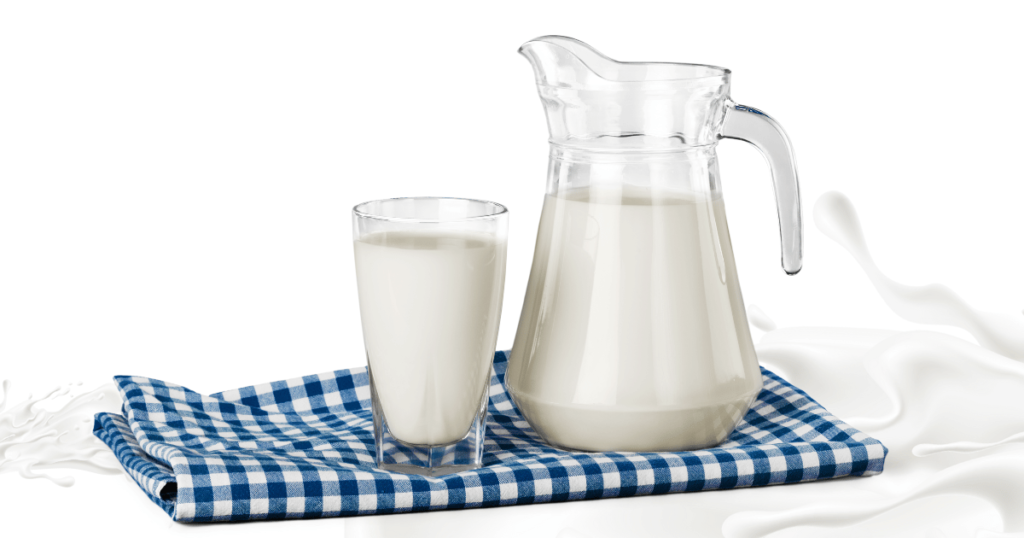
Plant-based milks offer a significant environmental advantage over dairy milk, with carbon emissions approximately three times lower than those from methane-producing dairy farms. However, the environmental impact of non-dairy milks isn’t straightforward and varies depending on several factors.
For example, in the UK, choosing almond milk made from Californian almonds raises concerns beyond carbon emissions from shipping. Almonds require a substantial amount of water to grow, and California’s frequent droughts make this water usage a contentious issue. Additionally, the process of bringing in bees for almond tree pollination has its own controversies.
Coconut milk also presents environmental challenges. The carbon footprint associated with transporting coconuts from tropical regions is considerable, and the working conditions for coconut farmers have recently come under scrutiny.
Packaging is another factor to consider. Most plant-based milks are packaged in Tetra Paks, which are difficult to recycle due to their mixed paper and plastic composition. However, local TerraCycle collections may offer recycling solutions for these containers.
In contrast, cow’s milk is typically sold in fully recyclable plastic containers, but the use of single-use plastics remains environmentally problematic. Glass milk bottles, often used in milk delivery services, are a more sustainable option and can be reused multiple times. Many of these services now include dairy-free alternatives in their offerings.
Despite these considerations, plant-based milks generally have a lower carbon footprint than dairy milk, even from UK-based farms. For the most eco-friendly choices, opt for oat or pea milk, especially if the oats and peas are locally grown in the UK. Homemade oat milk using UK-grown oats is perhaps the most sustainable option, followed closely by oat milk delivered in glass bottles by an electric van.
Switching to plant-based milks
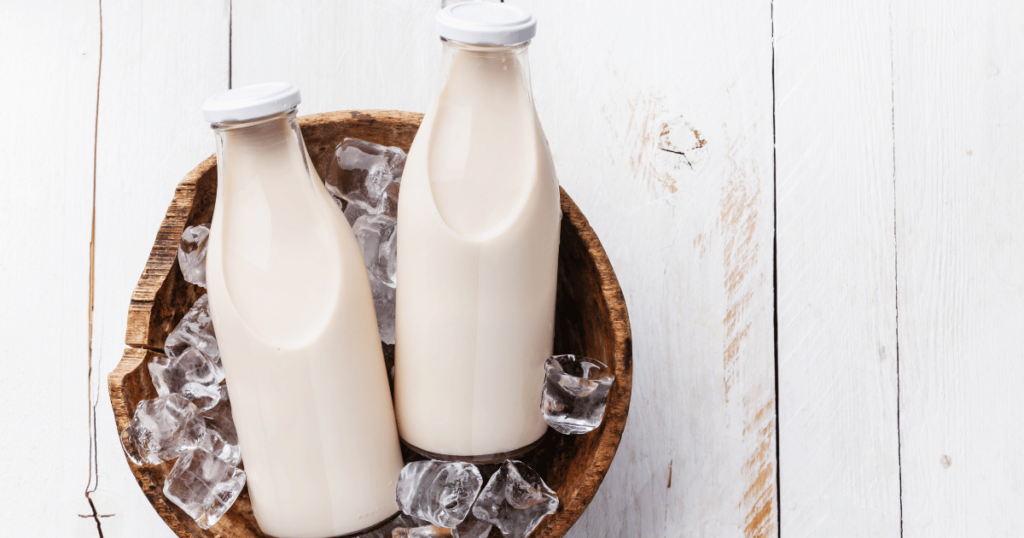
Navigating the world of dairy-free milks can indeed be overwhelming! The reality is that no single plant-based milk perfectly aligns with all health, environmental, and taste preferences. The best choice largely depends on your personal health goals, intended use, and taste preferences.
At Health Natural, we’ve found that using a variety of plant-based milks for different purposes is the most effective approach. For instance, we might add a dash of British oat milk in our coffee, not overly worrying about the oil content since the quantity is minimal. In our protein smoothies, we alternate between oil-free soy or almond milk and organic pea milk, which contains oil. Sometimes, we even dilute it with water and add extra hemp protein powder for a nutritional boost.
The key takeaway is the importance of making informed choices that align with your health goals, environmental considerations, and animal welfare values. It’s about finding a balance and recognizing that compromises may sometimes be necessary.
Deciding to switch to dairy-free milk can be beneficial for various reasons, but it’s also crucial to acknowledge the nutritional advantages of cow’s milk. Be gentle with yourself while making this transition, aim for balance, and enjoy the process of experimenting with different options!
check out this 12 Foods You Should Never Eat for Lunch



